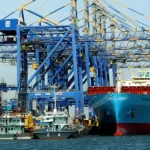The World Bank has advised Pakistan to overhaul its trade and economic policies by improving preferential trade agreements (PTAs) with ten partner countries, ensuring a flexible exchange rate, and addressing high energy and input costs to reverse decades of declining exports.
In its policy note to the government, the Bank said Pakistan’s exports had dropped from 16% of GDP in the 1990s to around 10% in 2024, with most earnings concentrated in low-value textile and agricultural products. It added that economic growth had relied mainly on debt and remittance-driven consumption rather than export expansion.
The Bank urged Pakistan to allow the rupee to reflect market forces by maintaining a flexible exchange rate and deepening the interbank market without central bank intervention. It called for publishing detailed interbank data and gradually eliminating ad hoc measures that distort market transparency.
It noted that tightly managed exchange rates, combined with rising imports during growth periods, had repeatedly led to balance-of-payments crises, eroding investor confidence and limiting private investment.
The Bank identified high tariffs, red tape, and government dominance in over 200 state-owned enterprises as major obstacles to productivity. It said such distortions had discouraged investment and hindered exporters’ access to finance. The report added that logistical bottlenecks, customs inefficiencies, and weak export promotion mechanisms further constrained growth.
It estimated Pakistan’s “missing exports” at nearly $60 billion, citing expensive electricity and limited digital infrastructure as key competitiveness challenges.
According to the Bank, Pakistan’s ten trade agreements—mostly limited to tariff concessions—remain underutilised. It recommended upgrading these to cover services, investment, and digital trade while expanding into new markets such as Sub-Saharan Africa and Latin America.
The report emphasised the need to strengthen Pakistan’s trade negotiation capacity, regularly consult exporters, and establish monitoring systems for agreement implementation.
The Bank welcomed recent tariff reforms but said they must be complemented by operationalising the EXIM Bank, enhancing trade facilitation, and ensuring a flexible exchange rate. It also called for building the National Tariff Commission’s capacity to monitor unfair trade practices and pursue deeper tariff reductions with key partners.
Discover more from Brackly News
Subscribe to get the latest posts sent to your email.



